Across the hilly and still verdant landscape of the Merrimack Valley township of Lowell, Massachusetts, there lay an impressive assortment of industrial-size buildings churning bales of cotton into thousands of bolts of textile fabrics destined for the linen and clothing manufacturers both in the US and across the world.
Spanish Flu
From the battlefields of France, a new type of warfare was making its way into the newly peaceful cities and towns of Americana. The peace accords signed at xx were welcome news to the millions of mothers, fathers, brothers, and sisters of military combatants, who had actively participated in mankind’s greatest and costliest human slaughter in recorded history to date. About 20,000,000 individuals, men, women, and children, had sacrificed themselves for ideological causes running from Jeffersonian democracy to banking, business, capitalism, and military nationalism. Also included in this mix was a new cause called Russian communism.
Now, however, that ordeal was out of the way, but tranquility did not return to the homelands of the previous foes. Mother Nature was brewing her cocktail of human distress in the form of a virulent, worldwide epidemic. Later, this disease was called the flu or la grippe or the Spanish flu.
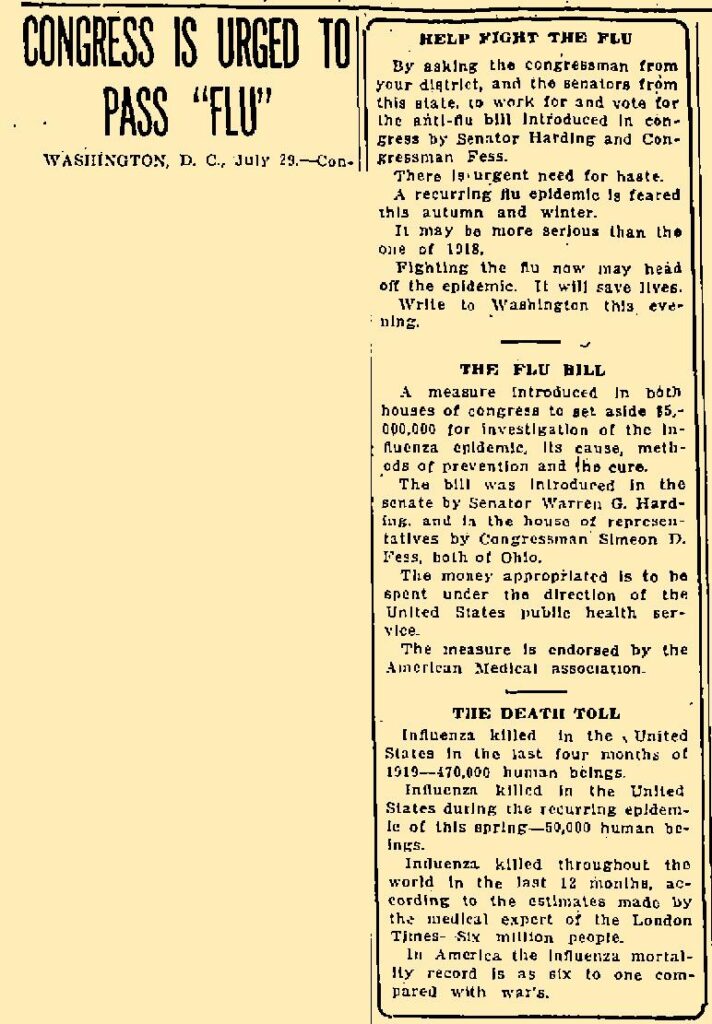
As a consequence, American soldiers stationed at Fort Devens in Massachusetts, and at an Army base in Kansas, were dying by the tens of thousands.
All hapless citizens in the metropolis could then add one more item to his/her list of favorite chronic worries. In addition to the ever-present uncertainties regarding the economic stability of the mill owners, the typical employee (mill personnel) in Lowell town now faced a new precariousness to his/her family wellbeing. Would this air-borne virus cripple many main breadwinners in the factories?
Where might such a worker find peace of mind in the turbulent and often boisterous environment, cacophony really, of this gigantic socioeconomic experiment? Humane solutions were not quickly forthcoming. Progress seems to show signs of success only after many minor pains have been distributed over a large workforce.
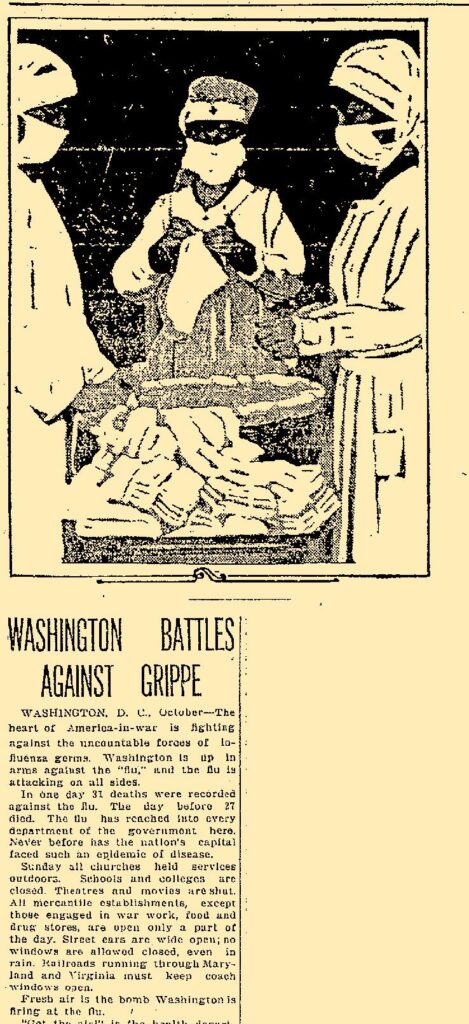
In October of the previous year, Congress had taken some preliminary measures to deal with this international epidemic. However, these initial efforts lacked international enforcement. This warning – see newspaper article – did underscore the gravity of this deadly disease. Perhaps, decades later, we can now criticize the associated poster as being well-meaning but not forceful enough?
Schools, colleges & theaters were ordered closed.
Churches held special services. Schools and colleges were closed. Similarly, theaters and movie houses were also closed. No windows were allowed closed to admit fresh air into interior spaces. Government agencies attempted to limit the freedom of their citizens for the general good of communities. The public might not have appreciated these unusual limitations on personal freedom, but this article does not suggest that these actions incited any visible protests.
Wall Street House of Cards Came Tumbling Down
The end of October 1929 spelled serious trouble for the nation’s stockbrokers, bankers, and big-time industrial investors, who once pulled the financial strings controlling the US economy.
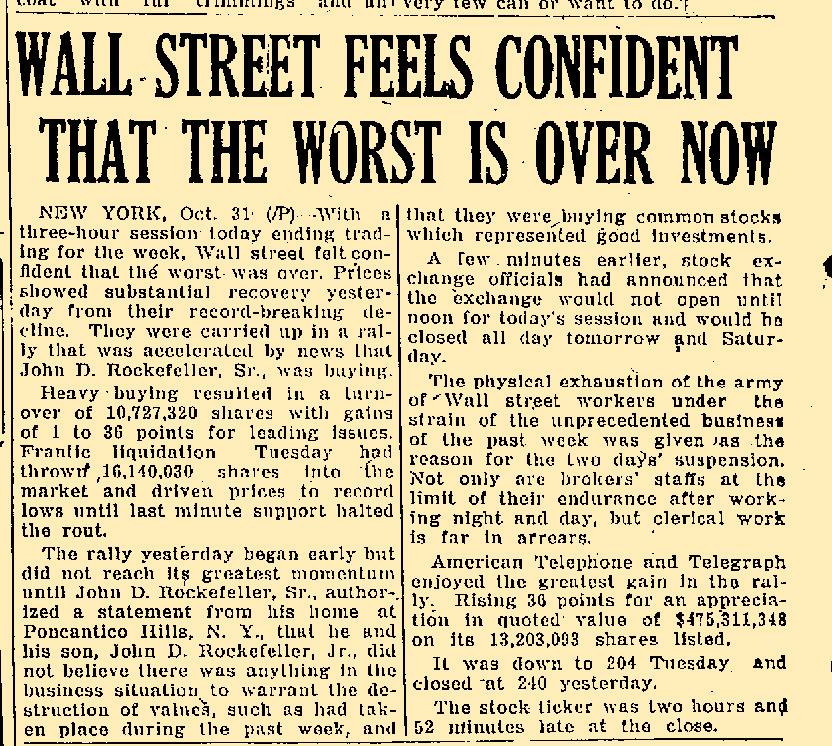
It was, certainly, not a pretty sight, either, for the little guy or gal, whose working career had been tied to an electromechanical piece of machinery that stamped out identical parts in a tedious, production-line fashion in Lowell’s eleven textile plants. Similar dismay was felt across the whole nation as the Great Depression embraced the socio-economic fabric of the nation.
Politically, these tensions sparked the brewing disagreements between Republicans and Democrats on several social issues.
The Hoover-Roosevelt ideological differences clashed, center stage, in every radio broadcast and newspaper edition from Maine to California, including Texas and Oregon.
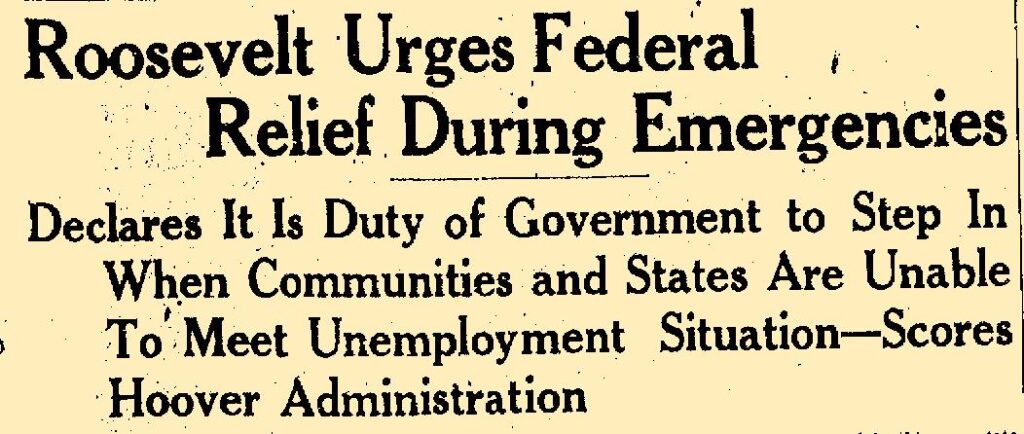
Which political party might bring peace and equilibrium to the country’s tattered nerves? Even the brilliant and whimsical Will Rogers could not cure the nation’s big tummy ache.
Although, to his credit, he did try. The following Good Read quotes are appropriately attributed to that saintly, literary individual:
“Too many people spend money they haven’t earned, to buy things they don’t want, to impress people that they don’t like.”― Will Rogers
and
“Everything is funny as long as it is happening to somebody else.”― Will Rogers
&&&&&&&&&&&&&&&&&&&&&&&&&&
Political Actors on the Scene – Tempestuous Leaders Making a Mark Elsewhere
World War I and the resulting turmoil of the worldwide economic collapse that happened in Russia, Germany, Hungary, Austria, Italy, France, and England – I am certain that I have missed the mark in some cases – opened the doors wide open for new brands of political movements in Western Europe plus deep economic anxieties in Japan and China. Essentially, the world was aflame with would-be leaders of different stripes ready to lead armies in life and death campaigns for glory. The planet was broiling with political anxiety that eventually lead to World War II.
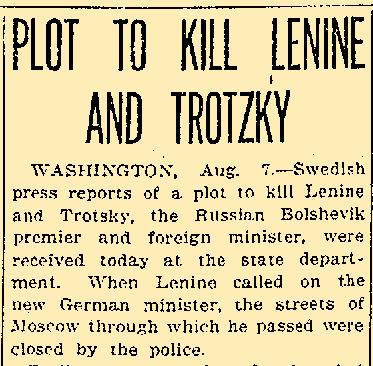
But, who were these young upstarts preaching their homemade solutions to social inequities that have plagued humanity since the start of history?

I, sometimes, heard their strange-sounding names, Lenin and Trotzky, mentioned around the kitchen table, but my parents and relatives never explained to me how these foreigners had come to believe such thinking. If any Communist ruler was called by name, it was Joseph Stalin, the man of steel. In Russia, gulags and forced labor camps cropped up in 1919, less than two years after the Communist Revolution. This was a time of political cleansing, mostly of upper-class elites from the time of the Czars. As I understand the issue, Stalin was greatly involved in cleaning the political ruling class of any non-revolutionary element still living in the country.

During the ensuing years, Stalin further solidified his control over the state. The Great Purge happened in the timeframe from 1937 to 1938. Many generals from the time of Cars were purged from military roles at this time.
Maybe, people are much more complicated than what a youngster from Centralville could possibly ever imagine?
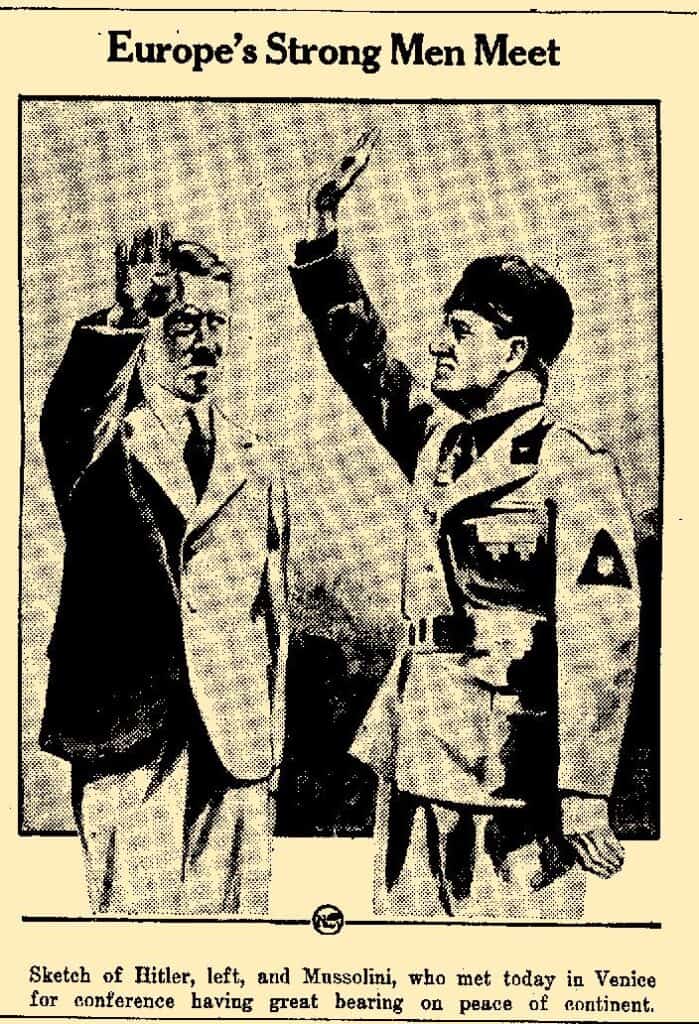
The foreign leader that I most often heard about was Adolf Hitler from Germany. He had been a soldier fighting for the German Kaiser during WW I, and the new government at the end of hostilities was called the Weimar Republic, which the victors had imposed upon the German nation as part of the peace treaty. I did not understand all the details, but some Germans did not appreciate and accept this so-called republic.
When the worldwide financial collapse happened on Wall Street in the autumn of 1929, the German economy crumbled – the bottom had fallen out – and the ugly seeds of National Socialism (NAZI ideology) began to blossom.
We in America also experienced a similar upheaval in our economy that was later called the Great Depression. Actually, related economic catastrophes also happened in England, Italy, France, Austria-Hungary, Greece, and Turkey while Russia and Poland trembled in the aftermath.
Simply said, democratic systems of government were being challenged both here in the US but, also, throughout Western Europe. Autocratic replacements were being proposed in Italy with Mussolini, in Spain with xx, in Germany with Hitler, and in Russia with Stalin.
The Poles, in contrast, were being squeezed by Germany on the west and Russia on the east. In summary, no European nation seemed happy with its piece of the general geography. Peace and tranquility existed nowhere. A new war seemed inevitable, which also threatened the USA and Canada because of the many mutual defense agreements, which were then at play.
Governance in the USA and in Canada

